
Gymnastics is a physically demanding sport that requires strength, flexibility, and long unsociable practice hours. A gymnast’s performance is not just dependent on their physical abilities, but also on their nutritional intake.
In this article, we will explore the importance of a gymnastics diet, what to eat and what to avoid, and how nutrition affects performance.
This article should be used as a generic guide and does not replace the need for personalized advice from a professional nutritionist or dietician.
Table of Contents
- Introduction
- Key Nutrients for Optimal Performance
- How much of each food type should a gymnast eat?
- What is the recommended daily calorie intake for a gymnast?
- Hydration for Gymnasts
- Foods to Avoid for Gymnasts
- Meal Timing and Eating Schedules
- 18 Healthy snacks for gymnasts
- Conclusion
- FAQs
Introduction
Gymnastics is divided into several categories (disciplines) including Artistic, Tumbling, Rhythmic and Trampolining. Each discipline has multiple levels which generally speaking will be either recreational or competitive types of training. Recreational-level gymnasts may only attend once or twice a week and sports-specific nutrition guidance will not have much impact on them. At this level, gymnasts should generally follow a recommended healthy diet depending on their age.
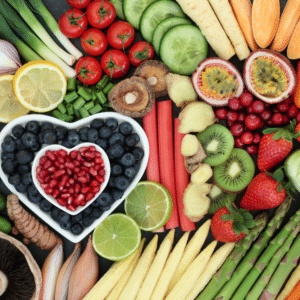
Nutrition begins to play a more critical role in competitive and elite gymnastics, as it directly affects a gymnast’s performance. Olympic gymnasts will typically train for over 30 hours per week therefore a well-balanced diet can provide energy, support muscle development and repair, and enhance endurance. On the other hand, a poor diet can lead to fatigue, injury, and decreased performance.
Key Nutrients for Optimal Performance
The ideal diet for a gymnast encompasses a balance of carbohydrates, proteins, and fats:
- Carbohydrates provide energy for muscles and brain function during high-intensity exercise, making up at least 50% of a gymnast’s diet. High-level gymnasts may consume over 250g of carbohydrates daily, sourced from minimally processed starches, grains, fruits, and vegetables.
- Proteins are essential for building muscles and repairing tissues. They should be included in all main meals and most snacks. However, unlike carbohydrates, proteins don’t directly fuel workouts in gymnastics but play a key role in muscle growth and post-workout recovery.
- Fats are vital for brain health, nerve insulation, and organ cushioning. Healthy fat sources, like oils, nuts, and seeds, should be a part of a gymnast’s diet, while avoiding unhealthy fats found in processed foods.
How much of each food type should a gymnast eat?
The percentage of each food type a gymnast should consume can vary depending on their individual needs and goals. However, a general recommendation for a well-balanced diet is to consume approximately:
- 45-65% of calories from carbohydrates, such as whole grains, fruits, and vegetables
- 10-35% of calories from protein, such as lean meats, poultry, fish, legumes, and dairy products
- 20-35% of calories from healthy fats, such as nuts, seeds, avocado, olive oil, and fatty fish
Gymnasts should work with a qualified nutritionist or dietitian to determine the appropriate macronutrient distribution for their specific needs and goals. Additionally, the timing and amount of food intake can also play a role in optimizing performance and should be considered in the development of a personalized nutrition plan.
What is the recommended daily calorie intake for a gymnast?
For physically active children like gymnasts, their calorie needs may be higher than those of sedentary children. The amount of additional calories needed depends on the intensity, frequency, and duration of their physical activity.
According to the Academy of Nutrition and Dietetics (www.eatright.org), active children and adolescents may need an additional 200-500 calories per day to support their physical activity needs. This means that a physically active 10-year-old boy may need 1,800-2,200 calories per day, while a physically active 14-year-old girl may need 2,000-2,400 calories per day.
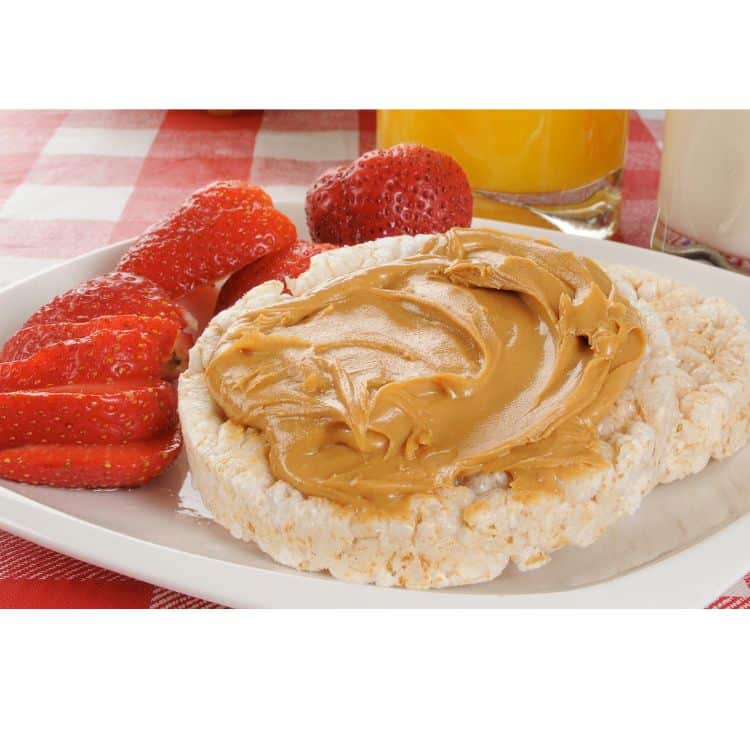
However, it is important to note that these are general guidelines and individual needs may vary based on factors such as body composition, metabolism, and training intensity. A registered dietitian or sports nutritionist can help determine the appropriate caloric intake for young gymnasts based on their specific needs and goals.
Hydration for Gymnasts
Hydration is another critical component of a gymnast’s diet. Gymnasts often fail to drink enough, impacting their performance, concentration, and recovery. Water is the primary recommendation for hydration, but gymnasts may also require milk for bone health or sports drinks, particularly during long, intense workouts in hot or humid conditions.
Is it possible for gymnasts to get overhydrated?
Yes, it is possible to get overhydrated, a condition known as hyponatremia or water intoxication. This occurs when there is an excessive intake of fluids, which dilutes the sodium and electrolyte levels in the blood to dangerously low levels. Symptoms of hyponatremia can include headaches, nausea, vomiting, confusion, seizures, and in severe cases, coma or death.

Gymnasts, like all athletes, should aim to stay properly hydrated during exercise, but it is important to avoid excessive fluid intake. Athletes should drink fluids before, during, and after exercise to replace fluid lost through sweat, but they should also pay attention to their body’s thirst cues and not force themselves to drink excessively. Additionally, consuming sports drinks or other beverages that contain electrolytes can help replenish sodium and other important minerals lost through sweat.
Foods to Avoid for Gymnasts
Some foods can harm a gymnast’s performance and should be avoided or limited. These foods include:
Sugary and processed foods
Sugary and processed foods can provide quick energy but can also lead to energy crashes and decreased performance.
High-fat foods
High-fat foods can lead to bloating, sluggishness, and decreased performance.
Consuming high-fat foods can lead to decreased performance for several reasons.
Firstly, high-fat foods can take longer to digest than carbohydrates, which can cause feelings of sluggishness or heaviness during exercise. This can lead to decreased energy levels and a decrease in overall performance.

Secondly, high-fat foods can cause gastrointestinal distress, such as bloating, gas, and diarrhea, which can be uncomfortable and distracting during exercise.
Finally, high-fat foods may not provide the quick energy needed for high-intensity exercise, such as gymnastics. Carbohydrates are the body’s preferred source of fuel for high-intensity exercise, and consuming too much fat can interfere with the body’s ability to use carbohydrates efficiently.
For these reasons, gymnasts and other athletes often focus on consuming foods that are high in carbohydrates and low in fat before and during exercise to optimize performance. However, it is important to note that some healthy fats, such as those found in nuts, seeds, and avocado, can be beneficial for overall health and should still be included in a well-rounded diet for gymnasts and other athletes.
Caffeinated and alcoholic beverages
Caffeinated and alcoholic beverages can lead to dehydration and decreased performance. It may not be that relevant to younger gymnasts but older gymnasts should take note of this warning.
Meal Timing and Eating Schedules
The logistical challenges of meal timing are significant for gymnasts, especially with practices spanning meals or snacks. Practice sessions for teenagers are usually scheduled in the evenings to avoid clashing with school. However, this makes it difficult to schedule evening meals.
An ideal schedule for a gymnast might include breakfast, mid-morning snack, lunch, pre-workout snack, dinner, and a bedtime snack. Skipping meals like breakfast can lead to decreased fueling for workouts and disrupt hunger/fullness cues.
18 Healthy snacks for gymnasts
Gymnasts that are struggling to schedule a regular evening meal should at least attempt to include a healthy snack. Here are some popular suggestions:
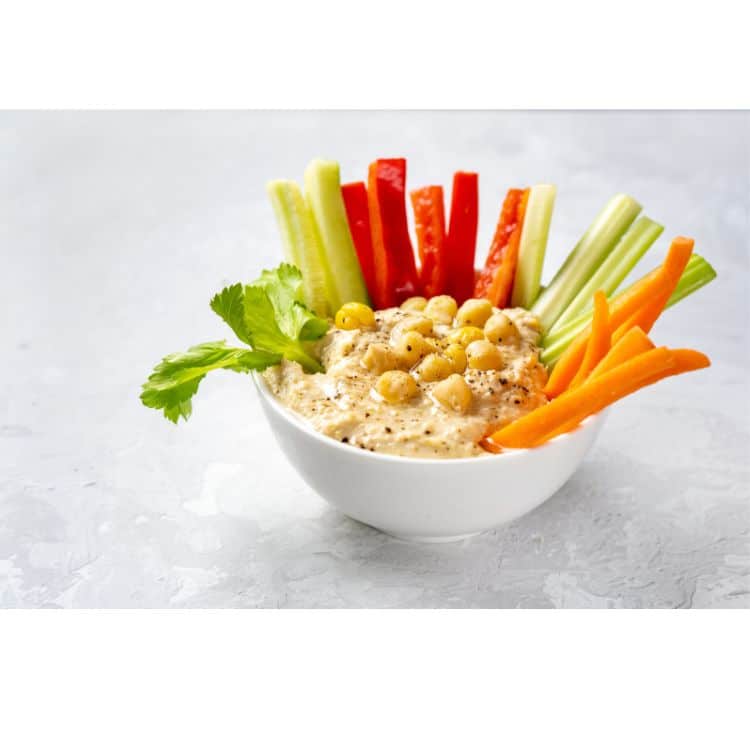
- Greek yogurt with fresh berries and granola
- Hummus with carrots, cucumber, and whole-grain pita chips
- Apple slices with almond butter
- Hard-boiled eggs
- Edamame
- Rice cakes with avocado and tomato
- Cottage cheese with fresh fruit
- Smoothie bowl with banana, spinach, and almond milk topped with nuts and seeds
- Turkey roll-ups with lettuce and tomato
- Sliced bell peppers with guacamole
- Quinoa salad with veggies and a vinaigrette dressing
- Air-popped popcorn with nutritional yeast
- Baked sweet potato with cinnamon and a drizzle of honey
- Trail mix with nuts, seeds, and dried fruit
- Tuna salad with whole grain crackers
- Roasted chickpeas with spices
- Turkey or chicken jerky
- Chia pudding with fresh fruit and nuts
These snacks provide a balance of protein, healthy fats, and carbohydrates to support a gymnast’s energy needs and muscle recovery.
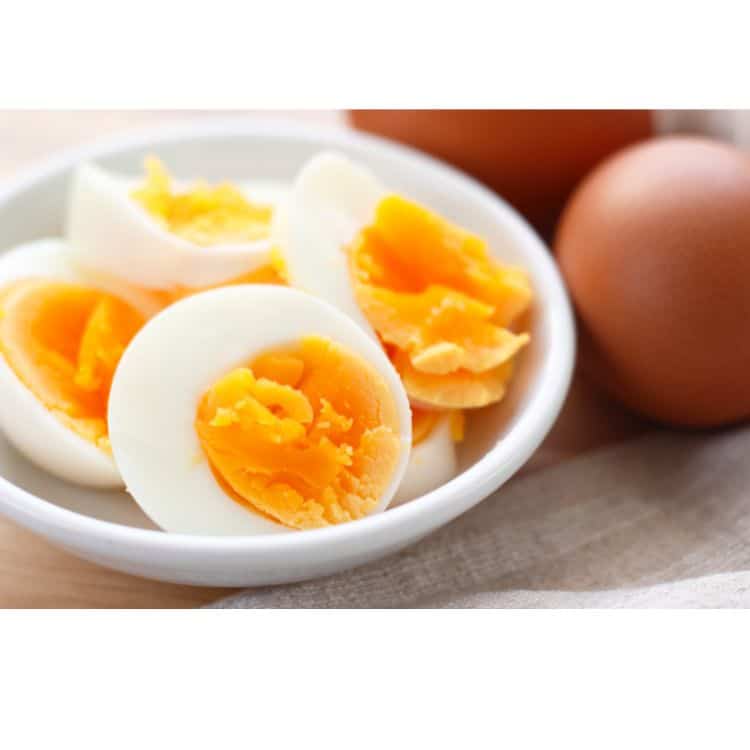
Conclusion
In conclusion, nutrition plays a critical role in gymnastics, as it directly affects a gymnast’s performance. To perform at their best, gymnasts should consume a well-balanced diet that provides adequate macronutrients and micronutrients, stay hydrated, and avoid or limit certain foods and beverages that can harm their performance.
By focusing on their nutrition, gymnasts can optimize their performance, enhance their endurance, and support their overall health and well-being. Gymnasts working at an elite level should work with a qualified nutritionist or dietitian to develop a nutrition plan that meets their individual needs and goals.
FAQs
- How many calories do gymnasts need? Gymnasts’ caloric needs vary based on their age, gender, weight, and level of physical activity. A qualified nutritionist or dietitian can help determine the appropriate calorie intake for each gymnast.
- Is it necessary for gymnasts to take supplements? Gymnasts can meet their nutritional needs through a well-balanced diet, and supplements should only be taken under the guidance of a qualified healthcare provider.
- Can gymnasts eat fast food? Fast food can be high in fat, sodium, and calories, and should be avoided or limited. Gymnasts can make healthier choices when eating out by choosing grilled or baked items, avoiding fried foods, and opting for fruits and vegetables as sides.
- What should gymnasts eat before a competition? Gymnasts should consume a meal or snack that is high in carbohydrates and moderate in protein and low in fat before a competition. Good options include oatmeal with fruit and nuts, a turkey sandwich on whole wheat bread, or a fruit and yogurt smoothie.
- How important is hydration for gymnasts? Proper hydration is crucial for gymnasts’ performance, as dehydration can lead to fatigue, decreased performance, and even heat exhaustion. Gymnasts should drink plenty of fluids before, during, and after exercise and choose water, milk, or sports drinks over sugary or caffeinated beverages.
In summary, proper gymnastics nutrition is vital for performance, endurance, and overall health. By consuming a well-balanced diet that provides adequate macronutrients and micronutrients, staying hydrated, and avoiding or limiting certain foods and beverages, gymnasts can optimize their performance and achieve their goals.
- A Complete Guide to Gymnastics Rips
 Are you tired of dealing with painful gymnastics rips on your hands from training? Look no further – this article offers a comprehensive approach to… Read more: A Complete Guide to Gymnastics Rips
Are you tired of dealing with painful gymnastics rips on your hands from training? Look no further – this article offers a comprehensive approach to… Read more: A Complete Guide to Gymnastics Rips - The 12 Types of Trampoline (explained)
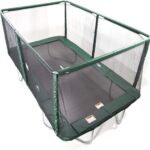 Trampolines, a staple of joy and fitness, cater to all ages, inspiring kids and adults alike to leap out of their indoor routines into a… Read more: The 12 Types of Trampoline (explained)
Trampolines, a staple of joy and fitness, cater to all ages, inspiring kids and adults alike to leap out of their indoor routines into a… Read more: The 12 Types of Trampoline (explained) - How is Gymnastics Scored? (answered)
 In the world of gymnastics, every flip, spin, and leap is a blend of athleticism, precision, and artistry. But how is gymnastics scored accurately and… Read more: How is Gymnastics Scored? (answered)
In the world of gymnastics, every flip, spin, and leap is a blend of athleticism, precision, and artistry. But how is gymnastics scored accurately and… Read more: How is Gymnastics Scored? (answered) - Gymnastics Laser Beam: Revolutionizing Training
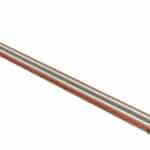 Gymnastics continually evolves with innovative and helpful training equipment. Among these advancements, the Gymnastics Laser Beam by Tumbl Trak stands out, redefining the way gymnasts… Read more: Gymnastics Laser Beam: Revolutionizing Training
Gymnastics continually evolves with innovative and helpful training equipment. Among these advancements, the Gymnastics Laser Beam by Tumbl Trak stands out, redefining the way gymnasts… Read more: Gymnastics Laser Beam: Revolutionizing Training - 41 Gymnastics Bar Moves (explained)
 Gymnastics bar moves are considered some of the hardest in the whole of the sport due to the immense strength and flexibility needed to perform… Read more: 41 Gymnastics Bar Moves (explained)
Gymnastics bar moves are considered some of the hardest in the whole of the sport due to the immense strength and flexibility needed to perform… Read more: 41 Gymnastics Bar Moves (explained) - Level 5 Gymnastics Skills (Guide)
 This guide delves deep into the Level 5 gymnastics skills, providing insights, breakdowns, and an expert perspective on each skill and its significance in a… Read more: Level 5 Gymnastics Skills (Guide)
This guide delves deep into the Level 5 gymnastics skills, providing insights, breakdowns, and an expert perspective on each skill and its significance in a… Read more: Level 5 Gymnastics Skills (Guide)
